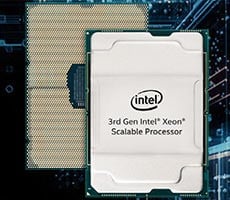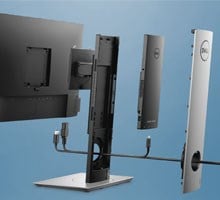Net Neutrality Won't Fix ISP Throttling, Here's Why
Or not... (Credit: Wikimedia Commons)
The Problem(s) With Net Neutrality:
Net neutrality is an attractive concept, particularly if you've followed the ways the cable and telco companies have gouged customers in recent years, and I'm a fan of the idea on some level -- but only to a limited extent. There are two problems with net neutrality as its commonly proposed. First, there's the fact that not all traffic prioritization is bad all of the time. Video streams and gaming are two examples of activities that require low-latency packet delivery to function smoothly. Email and web traffic can tolerate significantly higher latencies before the issue becomes apparent to the end user. If you're pushing email to your phone every 10 minutes, a delay of 500ms isn't going to be noticeable. In gaming or video delivery, a delay of 500ms is a lag spike that can materially impact performance significantly.
Net neutrality isn't just one thing. Functionally, it's many different types of things. Source: Interstream
Similarly, almost everyone agrees that ISPs have some responsibility to control network performance in a manner that guarantees the best service for the most number of people, or that prioritizes certain traffic over others in the event of an emergency. These are all issues that a careful set of regulations could preserve while still mandating neutral traffic treatment in the majority of cases, but it's a level of nuance that most discussions of the topic don't touch.
The larger and more serious problem with net neutrality as its often defined, however, is that it typically deals only with the "last mile," or the types and nature of the filtering an ISP can apply to your personal connection.
The Last Mile Isn't Where The Bottlenecks Are:
In virtually all of the public spats between Access ISPs (Verizon, Comcast, TWC) and Carrier ISPs (Cogent, Level 3), the battle has had nothing to do with your own personal Internet connection. In every case, the fight has been over peering and whether or not the Access ISPs deserve additional funds. This is one place where the companies like TWC and Comcast hold all the cards. Not only are they the arbiters of whether or not customers get to access Netflix or other high-bandwidth services, Netflix has no alternate way to reach its own customers without help from the traditional ISPs.The existence of this bottleneck is one of the greatest problems in the United States infrastructure. Netflix and other video or business service providers can do relatively little to challenge the role of Access ISPs when so few US citizens have access to competitive broadband. The FCC's own classifications of broadband work against the real picture in this case. Cellular wireless and satellite communications may technically be "broadband" in some extremely specific definitions of the word, but neither are generally competitive with wireline performance. Even in places where they are competitive, thanks to the particular geography or low population density of an area, the exorbitant cost of service and per-GB price structure ensure that they can't realistically be compared to conventional wire.
According to research results presented earlier this year, 37% of Americans only have access to two ISPs, while 28% have access to just one. This actually includes wireless services -- remove those, and the numbers are even worse. It's this lack of choice that gives the Access ISPs all the power when Cogent and Comcast get into a fight. Comcast knows that it can prevent you from going anywhere else for Internet access through the use of service contracts and the fact that it's the only game in town. The proposed merger between Time Warner Cable and Comcast would only make the situation worse.







